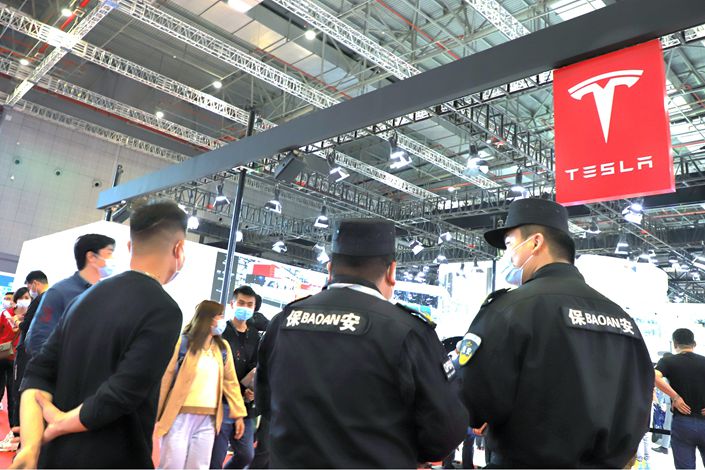Blog: Who Owns Your Tesla’s Data?
Listen to the full version

At the Tesla booth at the 2021 Shanghai International Automobile Industry Exhibition, a car owner climbed atop a Tesla car to voice accusations of brake failure. The woman was subsequently handed the punishment of five-day administrative detention for disturbing public order. The incident has stirred heated public debate.
Regulatory authorities joined the fray, requesting data from Tesla on the vehicle involved in the woman’s accident. Tesla complied.
Unlock exclusive discounts with a Caixin group subscription — ideal for teams and organizations.
Subscribe to both Caixin Global and The Wall Street Journal — for the price of one.






